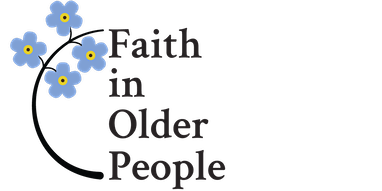Since March I and others like me have found ourselves mentioned regularly in the daily news reports – not by name but as a group who, it is said, are the most vulnerable in this Coronavirus pandemic. We are over 75 years old!
Being vulnerable is often defined as uncertainty or being at risk or ‘weakness.’ But being vulnerable not only describes the poor or sick, the very young or the very old, it also describes those who face up to their own vulnerability in protecting and caring for the folk in our hospitals and care homes, and in the community working to bring hope and healing in the darkest of these times. And that needs courage and boldness
The scriptures of many faiths speak about a “God or power of love” that gives meaning to our lives. Amidst the many layers of such a belief is the experience of vulnerability.
In the Christian Gospels, Jesus says, “‘I have a dream for this world, where the poor are taken care of, the sinner is accepted, the marginalized and foreigner are welcomed.’ Yet at times humanity rejects this dream. And it is the consequence of that rejection that is portrayed in the Good Friday story. Nowhere is God’s vulnerability more on display than in the portrayal of Jesus on the Cross. And so we have to recognise in this vulnerable God, not a magician to make suffering magically disappear, but our companion who walks along with us in our own journey through life.
So the vulnerable God is very much at the heart of this global pandemic sharing in the world’s suffering. She is to be seen in the nurse in hospital and care home holding the hand of a dying patient because their family cannot visit them. He is to be seen in the compassion and practical loving care that family, neighbours and friends offer. The words of the American writer, the late Madeleine L’Engle, are for me, pertinent in these uncertain times.
“I will have nothing to do with a God who cares only occasionally. I need a God who is with us always, everywhere, in the deepest depths as well as the highest heights. It is when things go wrong, when good things do not happen, when our prayers seem to have been lost, that God is most present. We do not need the sheltering wings when things go smoothly. We are closest to God in the darkness, stumbling along blindly.”
“When we were children, we used to think that when we were grown-up we would no longer be vulnerable. But to grow up is to accept vulnerability… To be alive is to be vulnerable.”
The Rt Rev Bruce Cameron
Primus, Scottish Episcopal Church 2000-2006; Bishop of Aberdeen & Orkney 1992-2006
Previous Chair, Faith in Older People
16 November 2020

